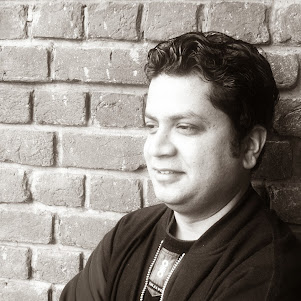We,
the Nepali alumni and friends of the Jawaharlal Nehru University (JNU), unequivocally
condemn the brutal violence on students and teachers of the University on
Sunday, January 5, 2020.
On
Sunday, over 100 masked hoodlums entered the JNU campus allegedly in collusion
with the University administration and the police, and unleashed a coordinated
attack on protesting students and teachers. Armed with rods and sticks, the
hoodlums even entered the hostels of female students and thrashed them brutally.
More
than 40 students and teachers, including JNU Students’ Union President Aishe
Ghosh and Centre for the Study of Regional Development (CSRD) Professor Sucharita
Sen, sustained severe injuries during the attack. That over 18 students and teachers
have been admitted to the All India Institute of Medical Sciences (AIIMS) for
treatment, explains of the heinous nature of the attack. We condemn the
inaction of Delhi Police and JNU security officials, for remaining mere spectators
during the attack, even as the students and teachers appealed for help
in-person and over social media.
The
students of JNU have been protesting peacefully for the past 70 days against
the hike in hostel and utility fees without proper consultation with the
students. Rather than heeding the students' demands, the University
administration has unilaterally decided to conduct exams for the Monsoon
semester and admissions for the Winter semester excluding majority of the
students. We salute the resolve of the students, and thank the teachers for
supporting the students in their rightful protest against the University's high-handedness
in deciding the students' future.
We
condemn JNU vice-chancellor M. Jagadesh Kumar for failing to provide security
to the students and teachers of the University, and for allowing armed mob to
enter the Campus, putting lives of the students and teachers in danger. We wish
to convey to him that he failed in his duty as a vice-chancellor and teacher, and
we urge him to begin a meaningful dialogue with the students to restore
normalcy in the University campus as early as possible.
As
Nepali alumni and friends of JNU, we are deeply concerned about the
undemocratic way in which the University administration has hiked the hostel
and tuition fees recently. This has resulted in a sever dip in the number of
Nepali students at the University. In its fifty years of existence as India's
premier University, JNU has produced outstanding scientists, administrators,
journalists, and public intellectuals, among others, who have contributed to
the betterment of India and the world. We, therefore, express our solidarity with
the students protesting for their constitutionally guaranteed rights to
education and freedom of expression.
Further,
we are alarmed at the way in which India's premier universities including JNU, Aligarh
Muslim University, Jamia Millia Islamia, Jadavpur University and Hyderabad
Central University have come under systematic attacks in the past few years,
with students and teachers being hounded for raising their rightful demands for
quality education and freedom of speech. Sunday's attack on JNU students and
teachers is in continuation of that series. Such attacks have created an
atmosphere of fear among Indian and international students at various Indian universities.
We wish to convey to the current Indian government, led by Prime Minister
Narendra Modi, that the international community is closely watching the
unfortunate developments in India's universities. We call upon the government
to ensure Indian universities remain secure for students, both from India and
abroad.
We
request Indian and international media to report freely and fairly on the
developments at JNU and other educational institutions under attack. We urge the
authorities to investigate the matter with utmost sensitivity and bring the
perpetrators to justice.
Finally,
we urge Nepal government to convey its concerns regarding the security of
Nepali students studying in Indian universities, and request Modi government to
ensure that the campuses remain secure for the students.
Date:
January 6, 2020





















